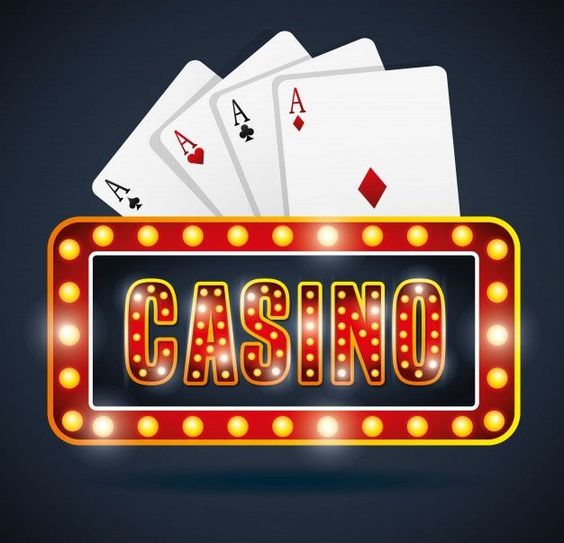What Are NFT Games?
Online gaming has transformed drastically over the past few years. In 2025, the boundaries between entertainment and income are blurred more than ever. NFT games, also known as play-to-earn (P2E) games, now offer players the chance to earn real value through digital ownership. Use online casinos that accept SG players. These blockchain-based games reward players with cryptocurrency and NFTs—digital assets that can be bought, sold, or traded for real-world value.
While some still see it as a trend, NFT gaming is quickly becoming a legitimate income stream and digital economy, especially in Southeast Asia and South America. Here’s how it all works.
The Basics of NFT Games
What Is an NFT?
An NFT (Non-Fungible Token) is a digital asset recorded on a blockchain. Unlike regular cryptocurrencies like Bitcoin or Ethereum (which are fungible and interchangeable), NFTs are unique. Each one can represent a specific item: a sword, a card, a character, or even a piece of virtual land.
In games, NFTs are used to tokenize in-game items. This gives players actual ownership, meaning they can sell, trade, or rent these items outside of the game’s internal economy.
How Do NFT Games Work?
Instead of just collecting points or achievements, players earn tokens and NFTs by completing game tasks—like battles, quests, or trades. These assets are stored in a crypto wallet and can be traded on marketplaces like OpenSea or Blur. The value is determined by rarity, utility, and demand.
Some NFT games use dual-token economies—one token for utility (used in-game) and one for governance (voting rights, staking rewards). These systems help reduce volatility and give players more control.
Key Features of NFT and Play-to-Earn Games
True Ownership of Digital Assets
Players own their characters, skins, weapons, or land—stored as NFTs. This differs from traditional games where all assets are owned by the developer. Ownership also means players can profit by trading rare NFTs or renting out assets for passive income.
Blockchain-Powered Transparency
All transactions, wins, losses, and item origins are recorded on a blockchain, making cheating or fraud almost impossible. This trustless environment is ideal for competitive or valuable ecosystems.
Play-to-Earn (P2E) Economy
Instead of paying to play, many NFT games reward you for your time. In 2025, top players in games like Gods Unchained, Illuvium, or Star Atlas can earn hundreds or thousands of dollars per month. Some even form guilds or DAOs to pool resources and share profits.
How to Start Playing NFT Games in 2025
Step 1: Set Up a Crypto Wallet
You’ll need a Web3-compatible wallet (e.g. MetaMask, Trust Wallet). This holds your crypto tokens and NFTs.
Step 2: Buy Tokens or NFTs
Many games require a small upfront investment—either purchasing a starter NFT or game tokens. However, free-to-play NFT games are also on the rise.
Step 3: Choose a Game
Pick based on your interests—strategy, card, RPG, sports, or racing. Some of the most popular in 2025 include:
- Illuvium – A 3D auto-battler with high production values
- Big Time – An action RPG with time-travel mechanics
- Upland – Virtual real estate game where players trade digital properties
- Axie Infinity: Origins – A revamped version of the P2E pioneer
- Parallel – A card-based sci-fi game using advanced NFT mechanics
Step 4: Earn & Trade
As you play, you’ll earn tokens or NFT rewards. These can be traded on secondary markets or used in-game to upgrade assets, enter tournaments, or stake for passive yield.
Are NFT Games Really Profitable?
Yes—but with important caveats. In 2021–2022, players saw massive gains during the crypto bull run. In 2023–2024, the market cooled, forcing NFT games to become more sustainable. Now in 2025, the top games offer:
- Solid game design first, not just token farming
- Clear tokenomics with capped supply and real utility
- Active player bases and developer transparency
- Ecosystems where spending and earning are balanced
Tip for Singaporean Players:
Always research before buying NFTs or tokens. Look for games with active Discord communities, detailed whitepapers, and regular updates. Avoid games that promise guaranteed earnings or lack transparency.
Benefits of NFT Gaming
- Earning potential – Top players or early adopters can earn from token appreciation or rare NFT drops.
- Community – Many NFT games are player-governed via DAOs, where you vote on game updates or rules.
- Interoperability – Some NFTs can be used across multiple games (e.g. avatars or weapons).
- Passive income – Rent out assets, stake tokens, or flip NFTs for a profit.
Risks to Consider
- Volatility – Token values and NFT prices can crash overnight.
- Regulation – Laws around crypto gaming are still developing in many countries, including Singapore.
- Scams – Always double-check marketplaces and links. Use hardware wallets for large holdings.
- Paywalls – Some games require high-cost NFTs to even get started.
Final Thoughts: Should You Play NFT Games in 2025?
NFT gaming in 2025 is far more stable, fun, and strategic than its early versions. The top titles focus on quality gameplay, while offering optional play-to-earn mechanics that can genuinely benefit dedicated players. If you’re in Singapore and want to combine gaming with finance, it’s a space worth exploring.
But treat it like investing—don’t go all-in. Start with a small budget, learn the system, and enjoy the games. Some will play for profit. Others will play for fun. With the right strategy, you can do both.

